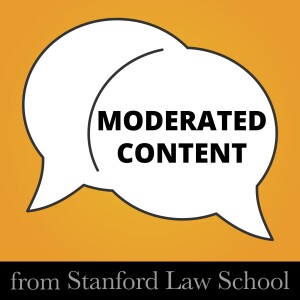
MC Weekly Update 1/23: A Dramatic Escalation in India v. Platforms
 2023-01-23
2023-01-23
Download
Right click and do "save link as"
Stanford’s Evelyn Douek and Alex Stamos weigh in on the latest online trust and safety news and developments:
- This should be a far bigger story: India is ordering platforms to take down content related to a BBC documentary. The widely predicted and highly consequential dramatic escalation in India’s legal battles with platforms is here, and we better be watching - Hannah Ellis-Petersen/ The Guardian
- The UK Online Safety Bill was back in the House of Commons last week, but the Sunak administration is biding time in negotiations over the wording of a new criminal liability provision for social media executives. An amendment also adds videos that show people crossing the Channel in small boats in a “positive light” to a list of illegal content that must be proactively blocked from users. Dan Milmo/ The Guardian, Dan Milmo/ The Guardian, Dan Milmo/ The Guardian, BBC News
- An investigative report highlights the mental health challenges and low wages for workers in Kenya that reviewed text snippets of disturbing situations and hateful speech in support of an OpenAI system to detect and prevent toxic content from appearing in ChatGPT and other tools. - Billy Perrigo/ Time
- The Federal Election Commission tossed out claims made by the Republican National Committee that Google’s Gmail spam filters are biased against conservatives because they send a higher percentage of GOP fundraising emails to spam. - John McKinnon/ The Wall Street Journal
- Former President Donald Trump’s presidential campaign is formally petitioning Meta to reinstate his social media accounts in a written letter. And Trump wants to get out of an exclusivity agreement to post first on his own social network, Truth Social, as his campaign plans to ramp up later this year. - Marc Caputo, Jonathan Allen/ NBC News, Asawin Suebsaeng, Adam Rawnsley/ Rolling Stone
- TikTok has an internal tool for staff to manually amplify individual videos, picking and choosing brands and creators to go viral without disclosing that recommended content for users. - Emily Baker-White/ Forbes
- Courtroom Corner:
- The Supreme Court has put two state content moderation cases on hold, asking the Biden administration to weigh in on challenges to Texas and Florida laws that would restrict social media companies from removing posts with political opinions. - @steve_vladeck, Adam Liptak/ The New York Times, Andrew Chung/ Reuters
- Nearly 50 amicus briefs were filed last week in support of Section 230 in Gonzalez v. Google. - SCOTUSblog
- It turns out that international soccer star Messi's record for the most-liked picture on Instagram was the result of coordinated authentic behavior. Following Argentina’s World Cup victory, fans organized to like Messi’s post and unlike the picture of an egg that previously held the title of the most liked Instagram post. - Lucía Cholakian Herrera/ Rest Of The World
- Because of course, members of Taliban leadership were among the Twitter Blue subscribers paying for a blue check mark verification badge on their accounts. The badge was removed from the accounts following intense backlash, but what do the blue checks even mean anymore? - Abdirahim Saeed/ BBC News, Ramon Antonio Vargas/ The Guardian
Join the conversation and connect with Evelyn and Alex on Twitter at @evelyndouek and @alexstamos.
Moderated Content is produced in partnership by Stanford Law School and the Cyber Policy Center. Special thanks to John Perrino for research and editorial assistance.
Like what you heard? Don’t forget to subscribe and share the podcast with friends!
More Episodes
Big Tech's Big Tobacco Moment?
 2024-02-03
2024-02-03
 2024-02-03
2024-02-03
MC Weekly Update 12/26: The Show Must Go On
 2023-12-28
2023-12-28
 2023-12-28
2023-12-28
MC Weekly Update 12/15: Nonsense Statistics
 2023-12-15
2023-12-15
 2023-12-15
2023-12-15
MC Weekly Update 11/15: The Big Game
 2023-11-16
2023-11-16
 2023-11-16
2023-11-16
MC LIVE 9/28
 2023-10-02
2023-10-02
 2023-10-02
2023-10-02
The 5th Circuit's Jawboning Ruling
 2023-09-11
2023-09-11
 2023-09-11
2023-09-11
MC Weekly Update 7/31: It's Complicated
 2023-08-01
2023-08-01
 2023-08-01
2023-08-01
MC Weekly Update: Why?
 2023-07-24
2023-07-24
 2023-07-24
2023-07-24
MC Weekly Update: Hanging by a Thread
 2023-07-10
2023-07-10
 2023-07-10
2023-07-10
012345678910111213141516171819
Create your
podcast in
minutes
- Full-featured podcast site
- Unlimited storage and bandwidth
- Comprehensive podcast stats
- Distribute to Apple Podcasts, Spotify, and more
- Make money with your podcast
It is Free
- Privacy Policy
- Cookie Policy
- Terms of Use
- Consent Preferences
- Copyright © 2015-2024 Podbean.com





